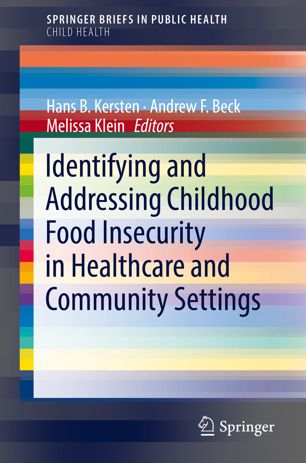

Most ebook files are in PDF format, so you can easily read them using various software such as Foxit Reader or directly on the Google Chrome browser.
Some ebook files are released by publishers in other formats such as .awz, .mobi, .epub, .fb2, etc. You may need to install specific software to read these formats on mobile/PC, such as Calibre.
Please read the tutorial at this link: https://ebookbell.com/faq
We offer FREE conversion to the popular formats you request; however, this may take some time. Therefore, right after payment, please email us, and we will try to provide the service as quickly as possible.
For some exceptional file formats or broken links (if any), please refrain from opening any disputes. Instead, email us first, and we will try to assist within a maximum of 6 hours.
EbookBell Team

4.1
90 reviewsThis salient resource offers clinicians a comprehensive multi-tiered framework for identifying, addressing, and reducing food insecurity among children and their families. Reinforcing the importance of food insecurity as a key social determinant of health, this monograph reviews the epidemiology and presents in-depth guidelines for screening for food insecurity and hunger. Recommendations for screening in a busy clinical setting as well as the strengths and limitations of widely-used instruments are discussed. The monograph also outlines a variety of clinic-level interventions, potential community-based resources, and opportunities for clinical-community partnerships to improve families’ food access and security. Further, contributors provide workable plans for large-scale advocacy through greater engagement with professional and community resources as well as policymakers. The monograph concludes with an outline of the critical steps to implement a food insecurity screening process and the key components to train the next generation of provider-advocates.
Included in the coverage:
Identifying and Addressing Childhood Food Insecurity in Healthcare and Community Settings will find an engaged audience among physicians and other clinicians who want to address food insecurity in their healthcare and/or community setting. Institutions that are starting to address social determinants of health, including food insecurity, will find guidance on screening tools, processes and evaluation of impact.